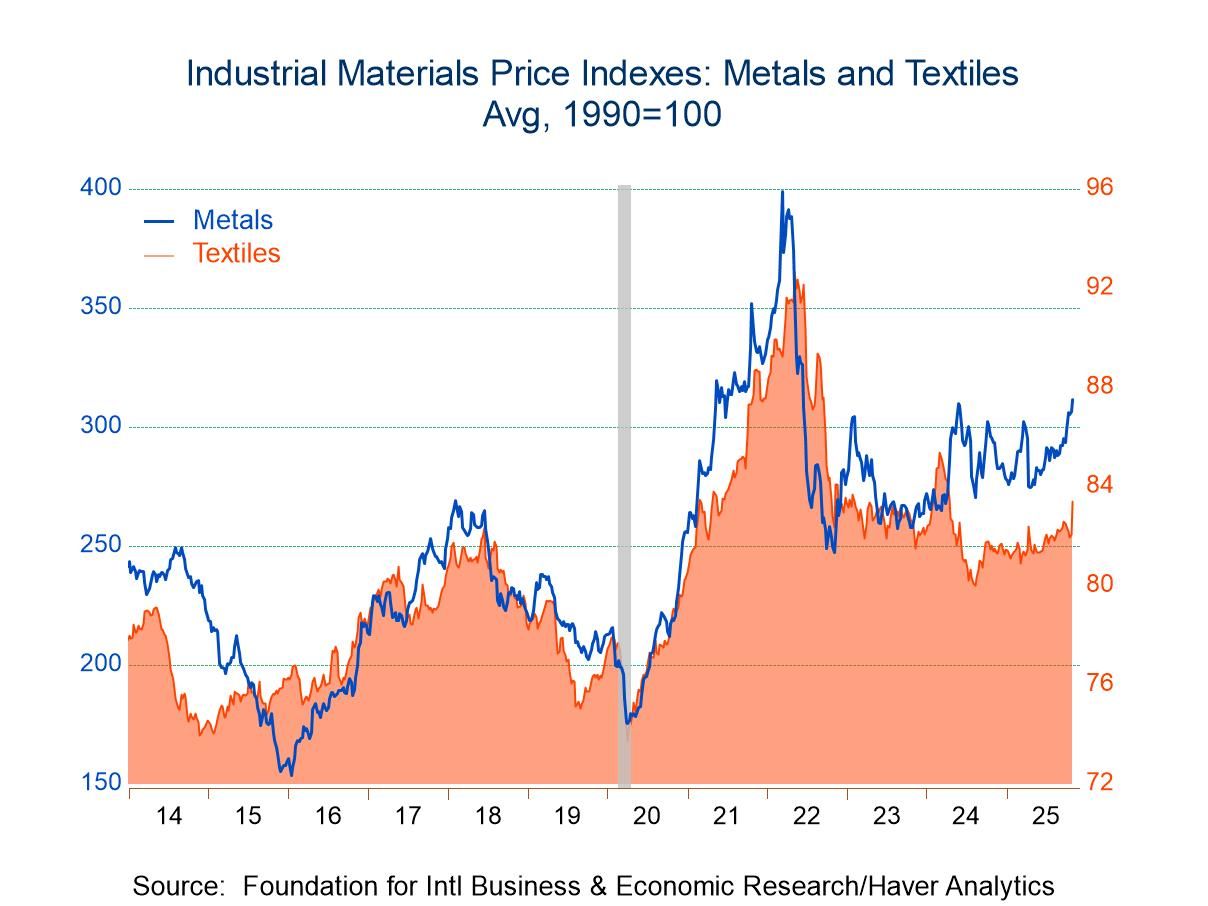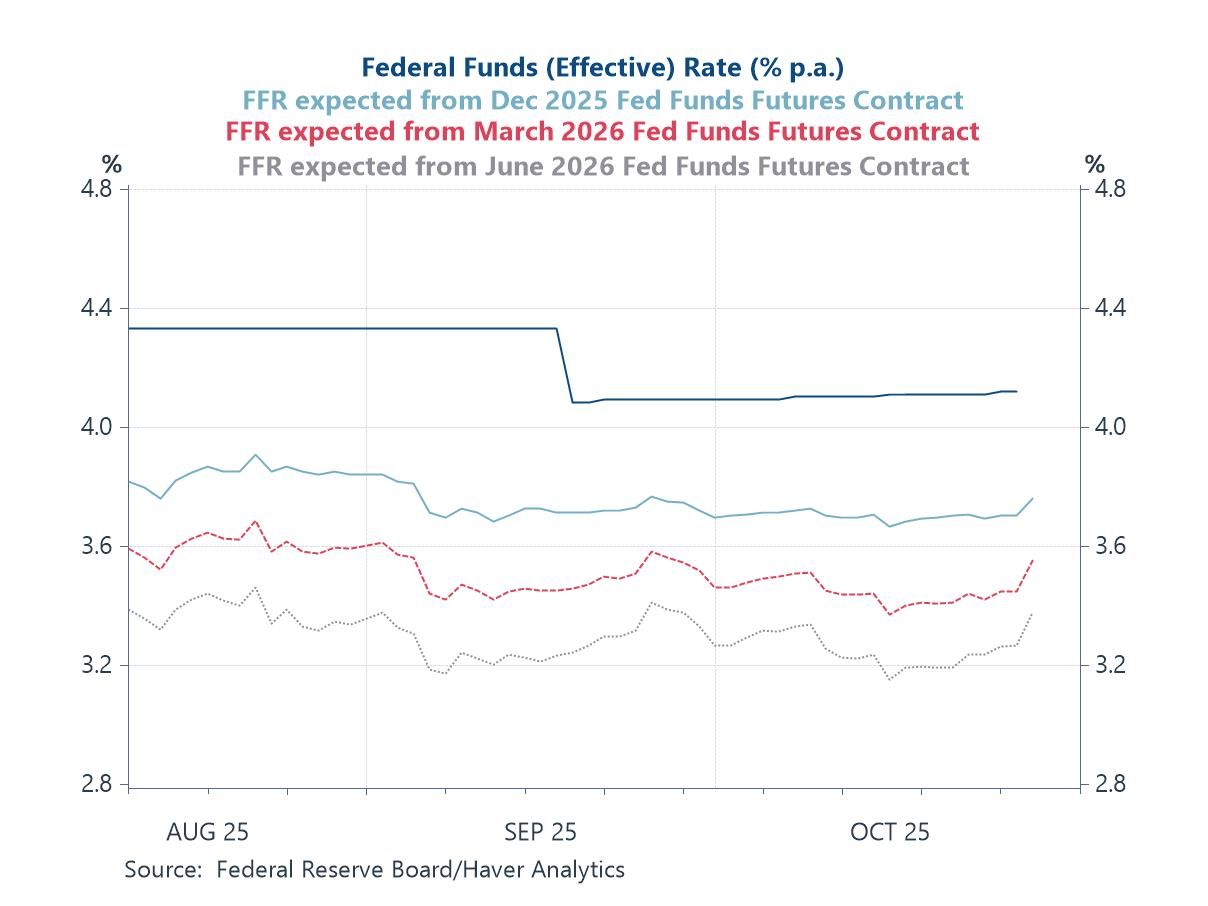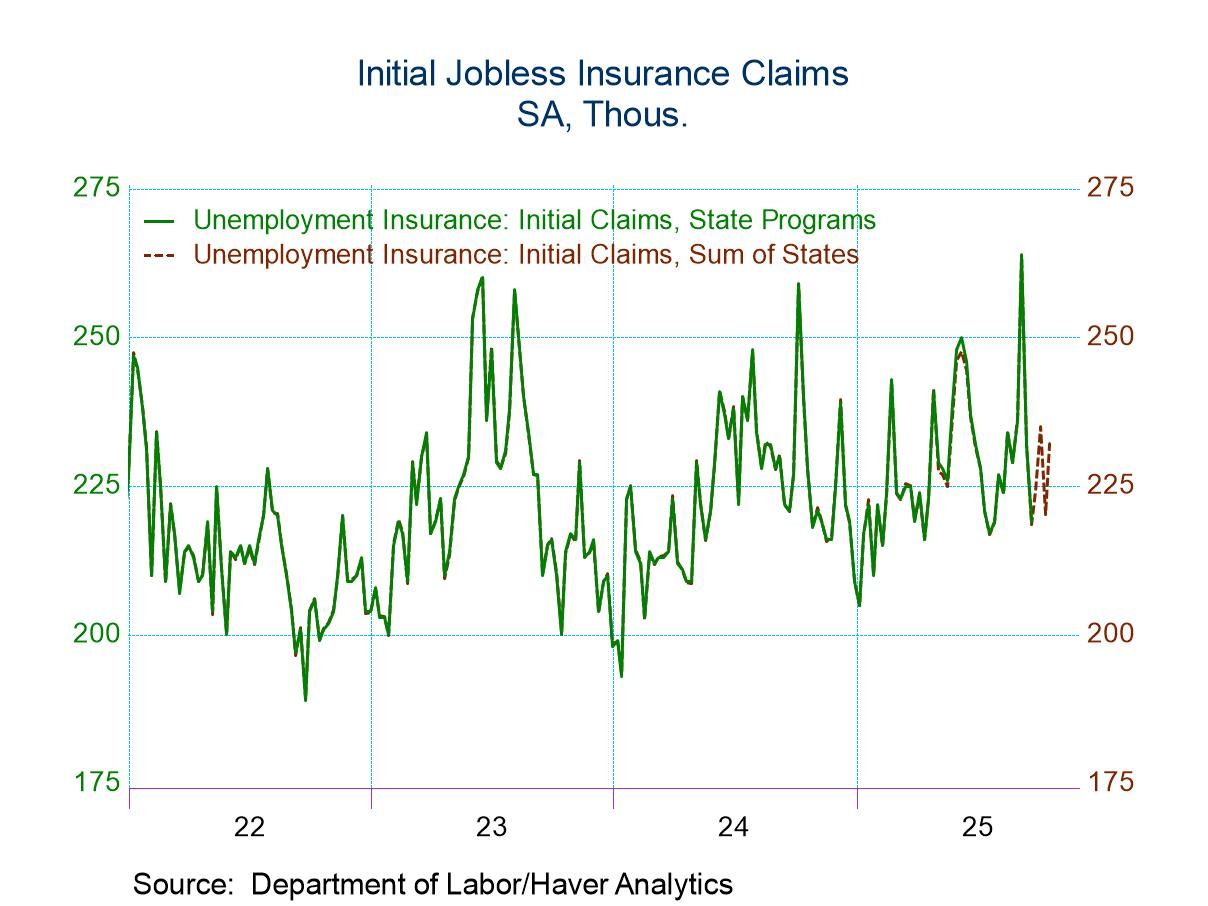 Global| Sep 17 2008
Global| Sep 17 2008U.S. Housing Starts Lowest Since 1991
by:Tom Moeller
|in:Economy in Brief
Summary
Housing starts fell hard again last month. The 6.2% m/m decline to 895,000 units (SAAR) followed a 12.4% drop during July which was revised slightly deeper. The August level was the lowest since 921,000 starts during January 1991. [...]
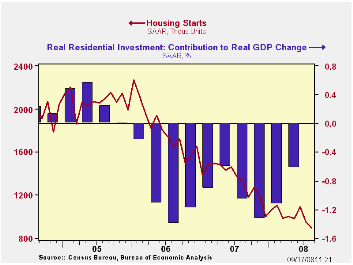
Housing starts fell hard again last month. The 6.2% m/m decline to 895,000 units (SAAR) followed a 12.4% drop during July which was revised slightly deeper. The August level was the lowest since 921,000 starts during January 1991. Consensus expectations had been for 950,000 starts
August starts of single-family homes fell by 1.9% to 630,000 units, also their lowest level since early-1991.
The latest figures suggest that housing this quarter will again subtract from GDP growth. So far in 3Q, single-family starts are down 5.8% from the 2Q average. Starts last quarter fell by 7.2% from 1Q and that decline was accompanied by a 0.6 percentage point subtraction from real GDP growth. For 3Q the subtraction will thus be roughly the same. During the last ten years there has been an 84% correlation between the q/q change in single-family starts and the contribution to quarterly GDP growth.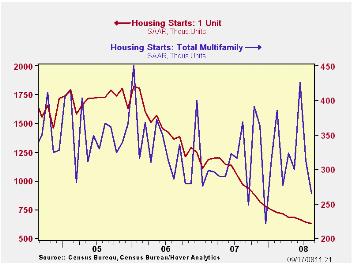
Multi-family starts have now retraced all of their rise during 2Q. They fell 15.1% last month after the 26.8% drop during July. Thus for 3Q so far, starts are down 17.6% after the 7.5% rise during 2Q.
By region, August starts of single-family units in the Northeast fell 8.6% (-14.7% y/y) following their 11.1% gain during July. The 5.3% m/m decline in the South dropped them 40.4% below the year-ago level. That was also the lowest since early 1991. In the West starts repeated their performance in July and rose 3.5% (-30.7% y/y) while single-family starts in the Midwest also rose by 5.5% (-32.7% y/y).
Building permits fell hard again. They declined 8.9% after a 17.7% plunge during July. Single-family permits repeated their July performance with a 5.1% (-40.3% y/y) decline. That was their lowest level since 1982.
The Fed's statement regarding American International Group (AIG) and the Federal Reserve Bank of New York can be found here.
| Housing Starts (000s, SAAR) | August | July | June | Y/Y | 2007 | 2006 | 2005 |
|---|---|---|---|---|---|---|---|
| Total | 895 | 954 | 1,089 | -33.1% | 1,341 | 1,812 | 2,073 |
| Single-Family | 630 | 642 | 663 | -34.9 | 1,034 | 1,474 | 1,719 |
| Multi-Family | 265 | 312 | 426 | -28.2 | 307 | 338 | 354 |
| Building Permits | 854 | 937 | 1,138 | -36.4 | 1,389 | 1,844 | 2,160 |
Tom Moeller
AuthorMore in Author Profile »Prior to joining Haver Analytics in 2000, Mr. Moeller worked as the Economist at Chancellor Capital Management from 1985 to 1999. There, he developed comprehensive economic forecasts and interpreted economic data for equity and fixed income portfolio managers. Also at Chancellor, Mr. Moeller worked as an equity analyst and was responsible for researching and rating companies in the economically sensitive automobile and housing industries for investment in Chancellor’s equity portfolio. Prior to joining Chancellor, Mr. Moeller was an Economist at Citibank from 1979 to 1984. He also analyzed pricing behavior in the metals industry for the Council on Wage and Price Stability in Washington, D.C. In 1999, Mr. Moeller received the award for most accurate forecast from the Forecasters' Club of New York. From 1990 to 1992 he was President of the New York Association for Business Economists. Mr. Moeller earned an M.B.A. in Finance from Fordham University, where he graduated in 1987. He holds a Bachelor of Arts in Economics from George Washington University.




